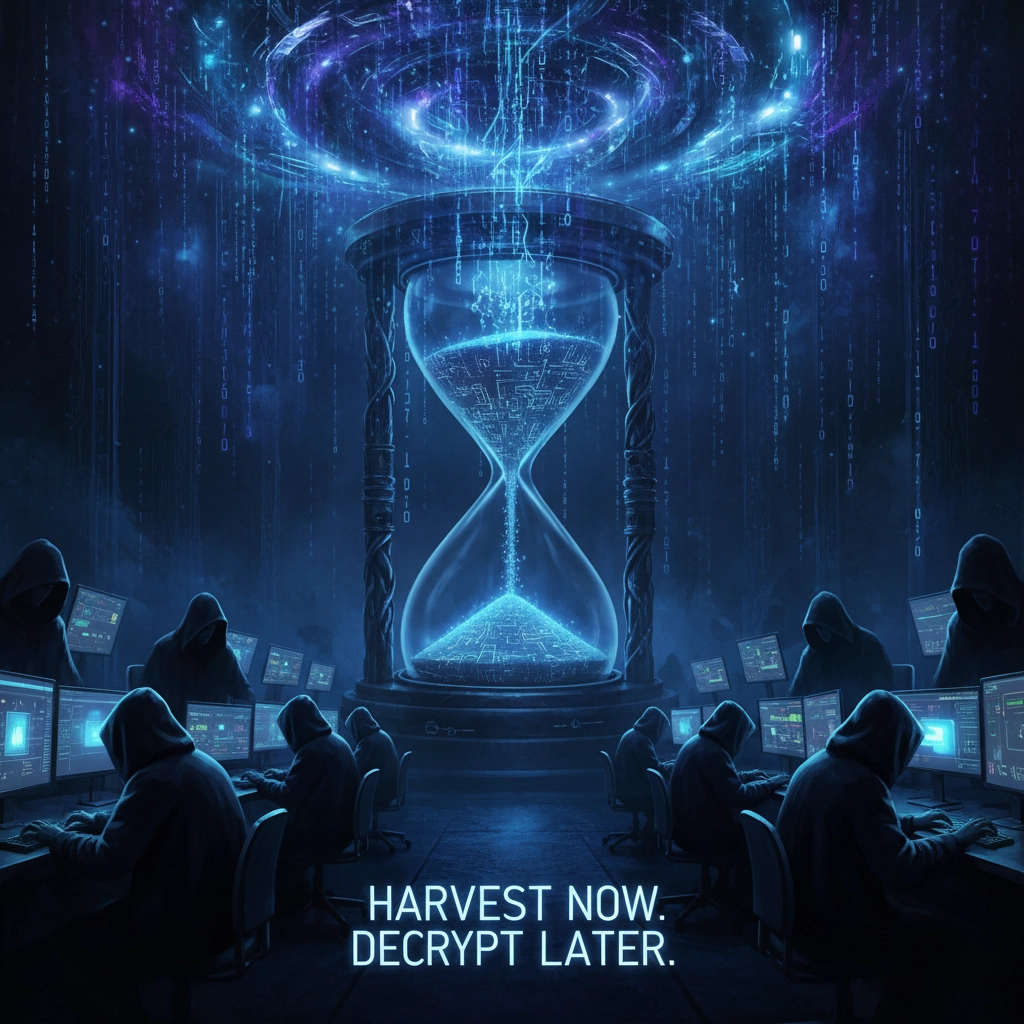Remember when your biggest online banking worry was forgetting your password? Well, there's a new player in town that's got cybersecurity experts losing sleep: and it's not what you think.
Quantum computers aren't just faster versions of your laptop. They're fundamentally different machines that could crack the encryption protecting your bank account faster than you can say "two-factor authentication." But here's the thing: should you actually be worried about your next online transfer?
What's Actually Happening Right Now
Let's cut through the tech noise. Today's quantum computers are basically fancy calculators with anger management issues. They've got a few hundred "qubits" (think of them as quantum brain cells), but breaking your bank's encryption would need millions of them working perfectly together.
It's like trying to demolish a skyscraper with a really expensive hammer: theoretically possible, but you'd need about a thousand more hammers and perfect coordination.

But here's where it gets interesting. Google's researchers just dropped a bombshell: they think it might take way fewer qubits than we originally thought. Instead of needing 20 million qubits to crack RSA-2048 encryption (the stuff protecting most online banking), they're now saying maybe just under a million could do the job.
That's still a massive leap from where we are today, but it's like finding out you only need to climb Mount McKinley instead of Mount Everest: still brutal, but suddenly more achievable.
The scary part? There are two main quantum algorithms gunning for your data:
- Shor's algorithm: Specifically designed to crack the public-key encryption that secures online transactions
- Grover's algorithm: Makes brute-force attacks against passwords way more effective
The Timeline Everyone's Talking About
Here's what's keeping security experts up at night: nobody knows exactly when quantum computers will get powerful enough to actually break encryption. But the federal government isn't taking chances: they've set 2035 as the deadline for all agencies to be "quantum-ready."
Think about it this way: if the government thinks we've got about a decade to figure this out, they're probably not being overly cautious.
But there's a twist that makes this whole situation more urgent than you might expect. Cybercriminals and nation-states aren't waiting around for quantum computers to get better. They're collecting encrypted data right now, planning to decrypt it later when the technology catches up. It's called "harvest now, decrypt later," and it's exactly as ominous as it sounds.

Imagine someone stealing your locked diary today, knowing they'll have the key in ten years. That's essentially what's happening with sensitive data across the internet.
Why Banks Aren't Panicking (And Neither Should You)
I'll let you in on a secret: banks have been preparing for this since before most people knew quantum computers existed. They're not sitting around hoping quantum computing will just go away.
Financial institutions are already running pilot programs with something called "post-quantum cryptography", basically, encryption that even quantum computers can't crack. It's like upgrading from a regular lock to a puzzle that gets more complicated the more computing power you throw at it.
Here's what banks are actually doing right now:
• Testing quantum-resistant algorithms in real-world conditions
• Working with NIST (the government's cryptography experts) to standardize new security methods
• Building multiple layers of security that don't rely solely on encryption
• Investing heavily in quantum-safe technologies before they absolutely need them
My friend Sarah works in cybersecurity at a major bank, and she told me something that really put this in perspective. "We're not waiting for quantum computers to show up at our door," she said. "We're already stress-testing our defenses against threats that don't even exist yet."
That's the kind of paranoid preparation that actually makes you feel safer, not more worried.

Banks also have something quantum computers can't touch: behavioral analysis and fraud detection. Even if someone could decrypt your account information, modern banking systems would still catch unusual spending patterns, location anomalies, and suspicious transactions in real-time.
What This Means for Your Money
Should you trust online banking today? Absolutely. Should you keep trusting it in five years? Also yes, but for different reasons.
Right now, no quantum computer on Earth can break the encryption protecting your bank account. The gap between current quantum computing capabilities and what's needed to crack banking encryption is still enormous. We're talking about the difference between a paper airplane and a space shuttle.
But even when quantum computers do get powerful enough, banks will be ready. The financial industry has too much to lose to get caught off guard. We're talking about institutions that spend billions on security and employ some of the smartest people in cybersecurity.
Plus, there's a massive economic incentive to get this right. Quantum computing is projected to add $450-850 billion to the economy over the next 15-30 years. That kind of money doesn't get invested in technology that destroys trust in digital transactions: it gets invested in making those transactions even more secure.
The real question isn't whether banks will adapt to quantum computing. It's how quickly they'll turn it from a threat into an advantage. Some banks are already exploring how quantum computing could make their own security systems more powerful.
What's your biggest concern about the future of online banking: the technology itself, or trusting institutions to stay ahead of the curve?







